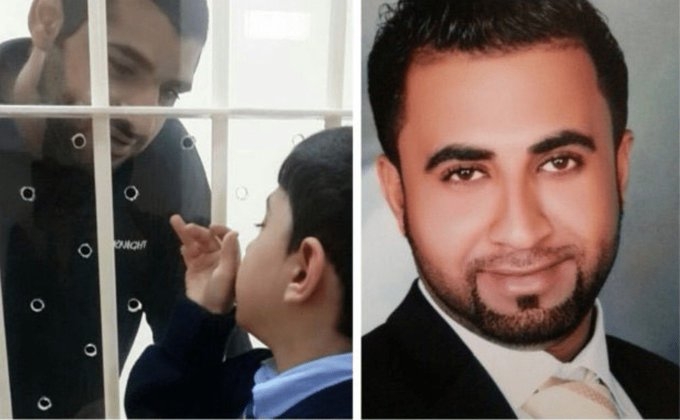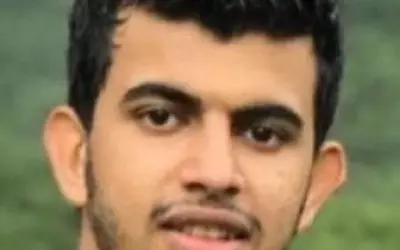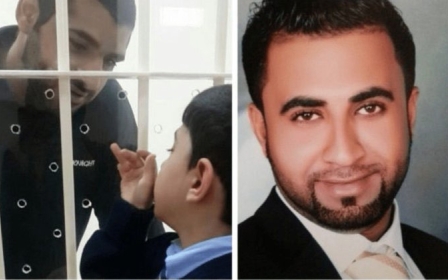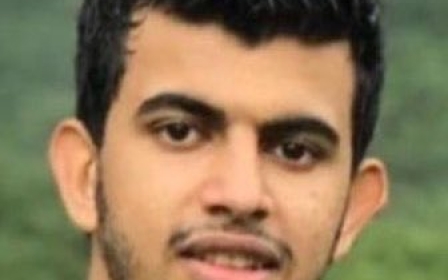Bahrain’s high court upholds death sentence against two pro-democracy activists

Bahrain's highest court upheld death sentence against two activists who were charged with killing an officer by bombing a police convoy in 2014, a statement from the kingdom's public prosecutor, published on Instagram and Twitter, said on Monday.
It was the final appeal to the Court of Cassation for Mohammed Ramadhan and his friend Husain Moosa, who rights groups said were sentenced to death based on confessions gained by torture.
Ramadhan, 37, and Moosa, 34, were leading figures during the Bahraini protests of 2011, which were brutally crushed with Saudi and Emirati support.
Security forces arrested Moosa, a hotel employee, and Ramadhan, a security guard at Bahrain's international airport, in early 2014 after a policeman was killed in a bombing in al-Deir, a village northeast of Manama. Ten other people tried with them have also been jailed.
Ramadhan refused to sign a confession but Moosa says he signed a statement in which he made a false confession and incriminated Ramadhan after being suspended by his limbs and beaten for several days.
They were sentenced to death in December 2014, and Bahrain’s highest court upheld the capital punishment a year later.
Amnesty International and a UK-based advocacy group, the Bahrain Institute for Rights and Democracy (BIRD), have said both men were tortured to extract false confessions, subjected to sexual assault, beatings, sleep deprivation and other abuses.
Both were prevented from meeting their lawyers until they were sentenced to death for the first time in December 2014, the rights groups say.
In 2018, the Special Investigations Unit (SIU), which is part of the public prosecutor’s office, uncovered a previously undisclosed medical report by a government doctor saying Moosa had injuries that matched his allegations of torture.
After the SIU released its findings and called for the death sentences to be revoked, the Court of Cassation, which had issued them, in October 2018 overturned its earlier ruling.
The Court of Cassation then asked for the death sentences to be reviewed.
The separate High Criminal Court of Appeal reissued the death sentences in January.
'I don't know how I will be able to tell my three children'
Mohammed’s wife Zeinab reported that she and Mohammed’s lawyer were barred entry from the courtroom on Monday.
All avenues for the two men have now been exhausted following Monday's decision, pending ratification by Bahrain’s king.
"Today’s verdict is yet another dark stain in the struggle for human rights in Bahrain... This horrendous injustice could not have happened without the tacit acceptance of Bahrain’s western allies,” Sayed Ahmed Alwadaei, director of advocacy at BIRD, said in a statement.
Zeinab said: “The terror of knowing that my husband can be executed by firing squad at any moment without proper notice is tearing me apart.
"I don't know how I will be able to tell my three children that their father is never coming home.”
In a call to his wife Zeinab from prison a week ago, Ramadhan bemoaned what human rights activists call a miscarriage of justice.
“I am Mohammed Ramadhan. Sentenced to execution. And I know that nobody might care about or listen to me, because I do not have money, or a [high] position, and am not famous,” he said, according to a recording made by Zeinab.
“There are pictures, medical reports, witnesses, which all prove that I was tortured.
“I am innocent of the crime of which I was accused, subjected to a sham trial and sentenced to death. My death will be unlawful, and yet, it has been [ordained] by law.
UK appeal
The Bahraini government’s Ombudsman’s Office within the interior ministry and the SIU within the justice ministry have responsibility for investigating torture.
Both organisations have received training and support from the UK, yet both have been described by the United Nations Committee Against Torture as being ineffective and lacking independence.
Earlier this month, 46 MPs and peers from across most of the UK’s major parties signed an open letter calling on Britain's government to urgently intervene in the case.
“The UK government has consistently failed to criticise due process violations in their trial or acknowledge abuses Mohammed and Husain have suffered. Just last week, the Foreign Office said it 'welcomed' the work of SIU and Ombudsman,” the letter read.
“The persistence of torture and the significant rise in the use of the death penalty since 2017 in Bahrain show that this soft-touch approach has not worked, and a further 10 inmates are at imminent risk of execution."
Commenting on Monday's ruling, Reprieve Director Maya Foa told Middle East Eye: "It beggars belief that the [UK] government is behaving as if nothing has changed today, when it is so deeply implicated in the death sentences of two fathers brutally tortured by the Bahraini regime.
"British taxpayers supported the Special Investigations Unit that whitewashed Mohammed and Husain's torture.
"The ruling that Husain's confession was 'borne out of conscious free will' is patently false, and an indictment of UK security assistance to Bahrain which, rather than protecting human rights, is being used as cover for severe abuses."
Torture allegations denied
Since 2017, Bahrain has hanged six people, five of them convicted on the basis of confessions allegedly extracted under torture.
There are now thought to be 26 people on death row in the country, of whom 12 are political prisoners at risk of imminent execution.
Home to the Middle East headquarters of the US Navy, Bahrain has prosecuted and revoked the citizenship of hundreds of people in mass trials.
Most opposition figures and human rights activists are jailed or have fled.
Bahrain's government has denied it tortures prisoners or persecutes the opposition.
It did not immediately respond to a request for comment from Reuters on the torture allegations.
Middle East Eye delivers independent and unrivalled coverage and analysis of the Middle East, North Africa and beyond. To learn more about republishing this content and the associated fees, please fill out this form. More about MEE can be found here.




